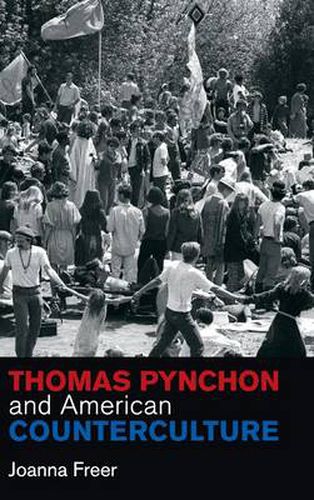Readings Newsletter
Become a Readings Member to make your shopping experience even easier.
Sign in or sign up for free!
You’re not far away from qualifying for FREE standard shipping within Australia
You’ve qualified for FREE standard shipping within Australia
The cart is loading…






Thomas Pynchon and American Counterculture employs the revolutionary sixties as a lens through which to view the anarchist politics of Pynchon’s novels. Joanna Freer identifies and elucidates Pynchon’s commentaries on such groups as the Beats, the New Left and the Black Panther Party and on such movements as the psychedelic movement and the women’s movement, drawing out points of critique to build a picture of a complex countercultural sensibility at work in Pynchon’s fiction. In emphasising the subtleties of Pynchon’s responses to counterculture, Freer clarifies his importance as an intellectually rigorous political philosopher. She further suggests that, like the graffiti in Gravity’s Rainbow, Pynchon creates texts that are ‘revealed in order to be thought about, expanded on, translated into action by the people’, his early attraction to core countercultural values growing into a conscious, politically motivated writing project that reaches its most mature expression in Against the Day.
$9.00 standard shipping within Australia
FREE standard shipping within Australia for orders over $100.00
Express & International shipping calculated at checkout
Thomas Pynchon and American Counterculture employs the revolutionary sixties as a lens through which to view the anarchist politics of Pynchon’s novels. Joanna Freer identifies and elucidates Pynchon’s commentaries on such groups as the Beats, the New Left and the Black Panther Party and on such movements as the psychedelic movement and the women’s movement, drawing out points of critique to build a picture of a complex countercultural sensibility at work in Pynchon’s fiction. In emphasising the subtleties of Pynchon’s responses to counterculture, Freer clarifies his importance as an intellectually rigorous political philosopher. She further suggests that, like the graffiti in Gravity’s Rainbow, Pynchon creates texts that are ‘revealed in order to be thought about, expanded on, translated into action by the people’, his early attraction to core countercultural values growing into a conscious, politically motivated writing project that reaches its most mature expression in Against the Day.